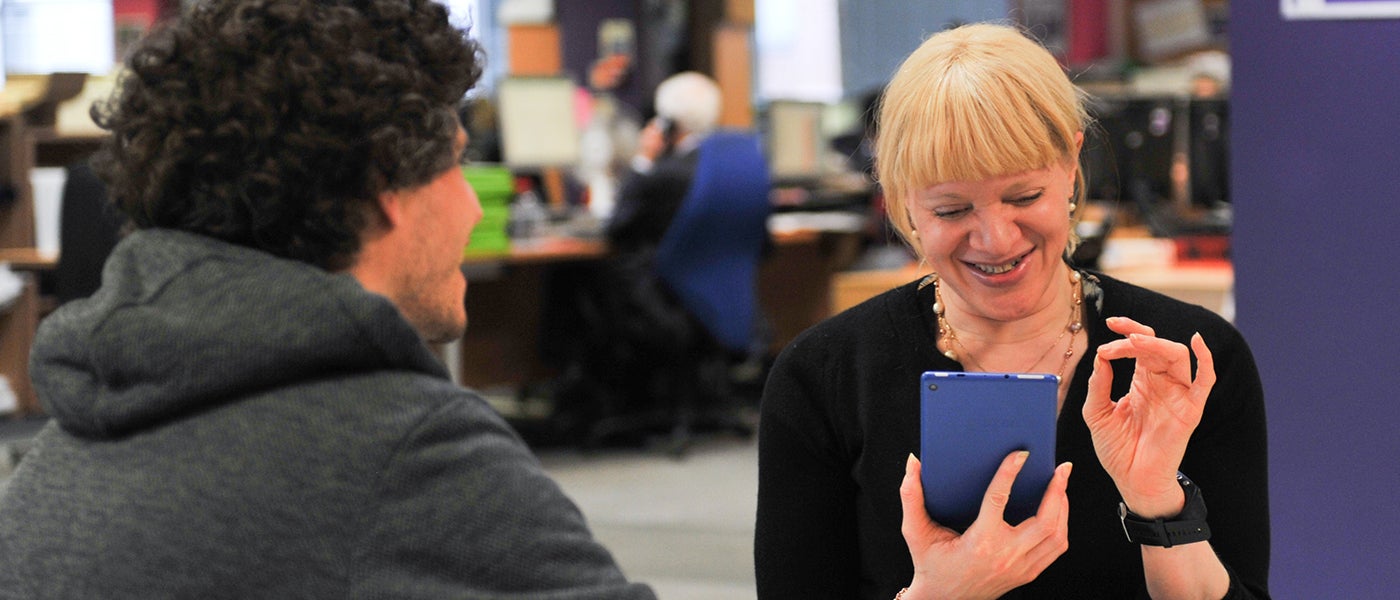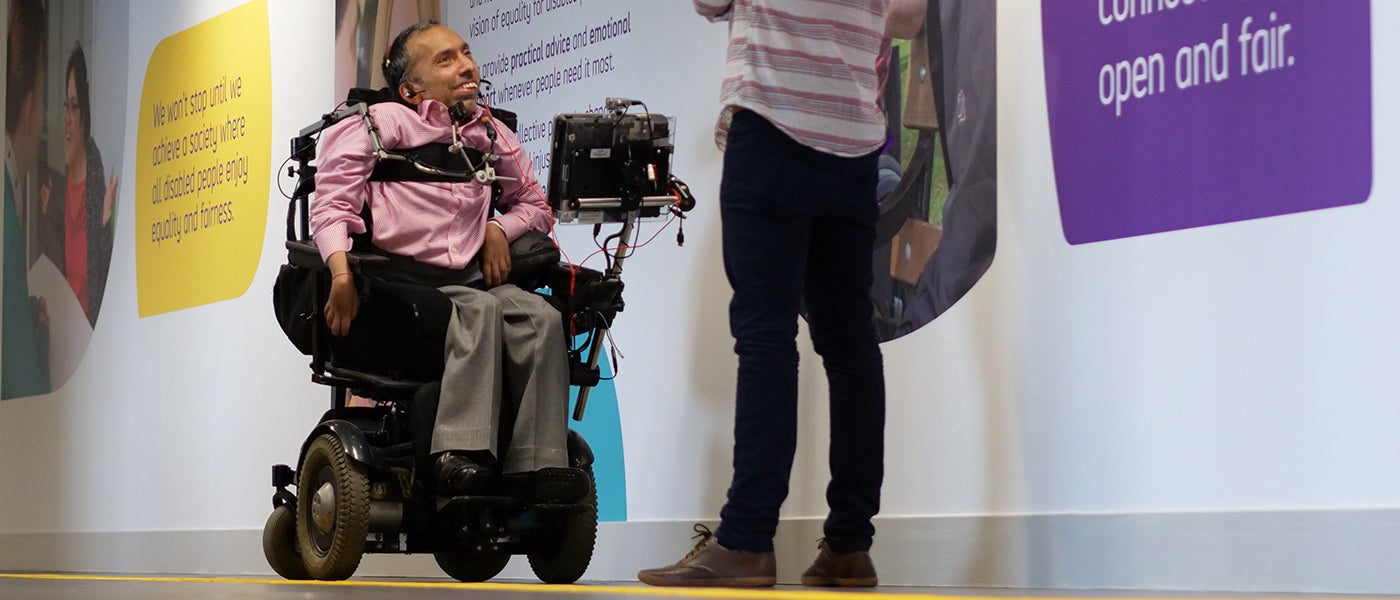- Home
- News and stories
- "Assistive technology is helping me live the life I choose."
"Assistive technology is helping me live the life I choose."
 11 September 2018
11 September 2018
I’m very selective when choosing assistive technology. Of course, everything has its purpose, but if it is no use to me, there’s no point in using it.
For me, because I have the option, I don’t use assistive technology for absolutely everything. I’ve only considered using assistive technology seriously when I started university in 2013.
Because I was doing a Creative and Professional Writing degree, it was clear that there was going to be a lot of writing involved. There was no guarantee that I would be able to type everything up in time, by only using 2 fingers on the keyboard without a fast typist beside me. I was lucky in the sense that I got quite a lot of help through Disabled Students’ Allowance (DSA) at uni.
I’ve always had the habit of writing nearly everything by hand so I can literally see what I am typing, rather than transferring my thoughts straight onto a computer. I have never been able to do it. The only exception is when I compose emails. But even then, if my email is very long and I’m exhausted, I would probably end up using some sort of assistive technology.
Technology has so many uses
I am (literally) using Dragon Naturally Speaking 13 to dictate this post in my bedroom. This version is pretty good. I was first introduced to this software in 2009, when version 9 came out. It was horrendous. No matter how much I tried to train the software to my voice there were too many typos per page. I literally wanted to rip my hair out.
I got Dragon 12 at the beginning of my university course in 2013. Thank God I did. There was just too much to do in so little time! Don’t get me wrong, it still makes mistakes, but they’re so rare that I can live with it now.
Something else I use quite regularly was my Olympus Sonority voice recorder. I used this device to record every single one of my lectures or big public events over the last 5 years. It’s great that they automatically convert into audio files that work on pretty much any device – so I could listen to them anywhere if I wanted to, either on my phone or laptop. It saves as a compatible file for your memory stick also – bonus!
Assistive technology can help you live the life you choose
A family friend showed me Apple’s voice recognition software and how it worked before I got my first iPhone. I got really excited by this. I wouldn’t use Siri in public, but voice recognition software on my phone has helped me do my most important job these days – dictating and replying to emails! I have a habit of sending really long emails! I don’t have to use my laptop, I just have to hold my phone in my hand and speak.
One of my really long emails to date, which I wrote by only my right thumb and predicted text (without using voice recognition at all), took me 2 hours to type. However, if I wrote that same email again using voice recognition software on my phone, it would have only taken me about half an hour. It is also a quick way to make notes in your notes section for reminders.
I personally wouldn’t go as far as using assistive technology to help me with absolutely everything. I don’t want technology to directly take over my life. But, I hope that this post has been helpful in showing how assistive technology can help you to live the life you choose.
We know there is still work to do until all disabled people enjoy equality and fairness, with digital and assistive technology playing a huge part in this. We all need to work together to change society for the better.
There’s something everyone can do to be a Disability Gamechanger so get involved in the campaign today to end this inequality.
 11 September 2018
11 September 2018







